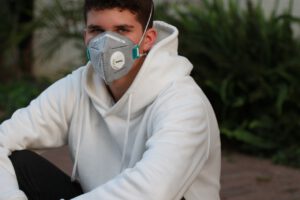Colleges Don’t Need Liability Shield to Open

Colleges Don’t Need A Liability Shield to Open; A Simple Proven Alternative Already Exists – Expert
if (typeof jQuery == ‘undefined’) { document.write(”); }
Q1 2020 hedge fund letters, conferences and more
WASHINGTON, D.C. (June 3, 2020) – At a Senate hearing on Thursday, many higher educational organizations will be asking for immunity from COVID-19-related lawsuits should they reopen campuses this fall, but Senator Patty Murray, among many others, said she opposes “granting a ‘liability shield’ because it would essentially say, ‘it’s okay if students or employees get sick.'”
An Alternative To Shield Educational Organizations
But there’s a third option – a simple proven alternative compromise solution – which would help shield educational organizations without awarding them blanket immunity, while at the same time permitting them to return to in-classroom instruction for students who demand it, and are willing to accept the unavoidable risks of classroom instruction, says public interest law professor John Banzhaf.
Banzhaf, who has been called “a Driving Force Behind the Lawsuits That Have Cost Tobacco Companies Billions of Dollars,” and “The Man Big Tobacco and Now Fast Food Love to Hate,” helped persuade Congress not to grant immunity to the tobacco industry and to the food industry (in the infamous “cheeseburger bill”).
Although the risks of becoming infected in a classroom cannot be completely avoided – even if students are required to wear masks, are seated far apart, and a 6-foot social separation rule can somehow be maintained without a single exception – that doesn’t necessarily mean that no classroom instruction should begin in the fall.
Since the individual risk to mostly young and largely healthy college students is very small, they may be willing to assume it for the benefits they see from in-classroom instruction, at least for some classes, and to avoid the kind of bad on-line instruction most just experienced – largely so unfavorable that they call it “ZOOM U.”
Signing A Waiver
If these students are willing to assume the risk of infection, then universities can, if they wish, ask the students to sign a release or waiver, similar to the releases they are accustomed to signing when they go skiing, engage in organized commercial activities such as rock climbing, or rent an e-scooter.
In all such cases – i.e., skiing, rock climbing, studying in a classroom, scooter riding, etc. – they acknowledge that there are unavoidable risks involved with the activity, which they are nevertheless willing to assume and accept, in exchange for being able to engage in the activity they desire.
Thus, in return for being permitted to participate, the students “assume the risk” (as lawyers put it), and agree not to hold the entity (ski slope operator, rock climbing school, university, scooter rental company) legally liable, except in the very rare event of gross negligence.
Student who are at exceptionally high risk of death because of advanced age or pre-existing medical problems can then be offered the opportunity to participate from home via the Internet.
Note that this approach also allows students more choice in terms of balancing – for themselves, and based upon their own individual values and concerns – risks vs benefits.
For example, some might choose to sign waivers only for courses where they see the greatest benefit from person-to-person instruction and lower risk: e.g., labs, performing arts. On the other hand, for courses where they may see less benefit but perhaps more risk from in-person instructions – e.g., large lecture courses – they could decline to sign waivers, and simply take the courses on line.
Insuring Waivers Will Be Effective
As a professor who teaches students to sue companies, and how to get around routine waivers, releases, and other assumptions of risk, Banzhaf suggests that colleges and universities take a few simple steps to help insure that their waivers will be effective and hold up in court.
First, colleges should be sure that those signing the releases are fully aware of the risks; perhaps by requiring them to first read warnings and analysis of the dangers from appropriate governmental bodies, major reputable scientific and medical organizations, etc.
Second, they should be sure that it is very clear to signers exactly what rights they are giving up in return for being permitted to return to a classroom. Having the signers check specific boxes, circle portions of the release document, provide clear warnings in large boldface, etc. would help to insure that.
Third, to avoid what lawyers call “contracts of adhesion” where one side have little choice but to sign, colleges should make it clear that students who do not wish to assume the risk of infection, in return for being able to attend classroom sessions, can take the courses on line.
Finally, although probably not required, colleges may wish to be sure that parents are on board with the waiver, especially for younger students, by having them co-sign the document, acknowledge via return email that they have read the document their son or daughter has signed, etc.
.fb_iframe_widget_fluid_desktop iframe { width: 100% !important; }
The post Colleges Don’t Need Liability Shield to Open appeared first on ValueWalk.
Original Article Posted at : https://www.valuewalk.com/2020/06/liability-shield-coronavirus-pandemic/

